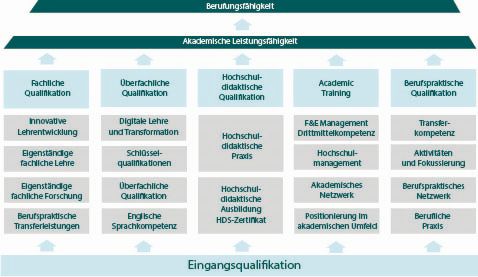Junior Academic Staff Advancement
Junior Academic Staff Advancement
The academic mid-level staff is not only one of the most important pillars of education. It is a solid foundation for strategic advancement of junior academic staff. However, the establishment of academic mid-level faculties at Universities of Applied Sciences (HAWs) can be found in exceptional cases.
A decisive advantage to change the existing situation is the Saxony Higher Education Freedom Act § 72 (SächsHSFG), enabling the establishment of academic mid-level faculties at HAWs. The SEM Project made use of this advantage to analyse the existing problems regarding junior academic staff recruitment and advancement, providing solutions for definite activity fields.
As a first step, initial elements of junior academic staff advancement, based on a current faculty-, university- and market – situation, are to be defined and systematically structured. The junior academic staff advancement goals arise out of the conditions of appointment for HAW-professorship and framework conditions for a faculty professor position, as well as requirements from areas of education, research, labour market and practice partners. Hereby, the requirements of education and research are of special significance.
As a result of a 6 years-long evaluation research as well as first pilot testings, a special qualification system for junior academic staff advancement arose out of the SEM project model. In this system, five areas of qualification elements for junior academic staff advancement can be stated: the disciplinary as well as interdisciplinary advancement of an academic expert, the higher education didactic qualification, the so-called academic training and the professional practice-oriented qualification. Hereby, they cover areas of higher education competences as well as competences, acquired outside the universities. The attractive working conditions and permanent advancement for the AkAs (1) as well as new process structures for qualification construction management.
The systematic academic qualification and appointment model, evaluated in the SEM Project, complies with the current Requirements of the University Rectors' Conference for sustainable Federal State Programme of professor appointments at Universities of Applied Sciences. As an important component of the systematic staff advancement concept, promotion of the career-oriented trainings can be notified, which enables acquiring of higher education competences and increases one's chances for a professor position at Universities of Applied Sciences significantly.
